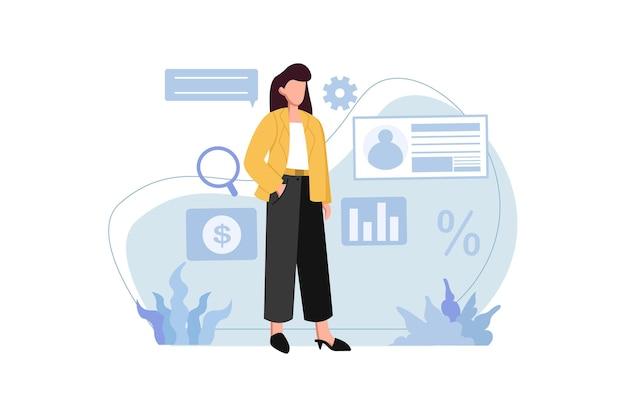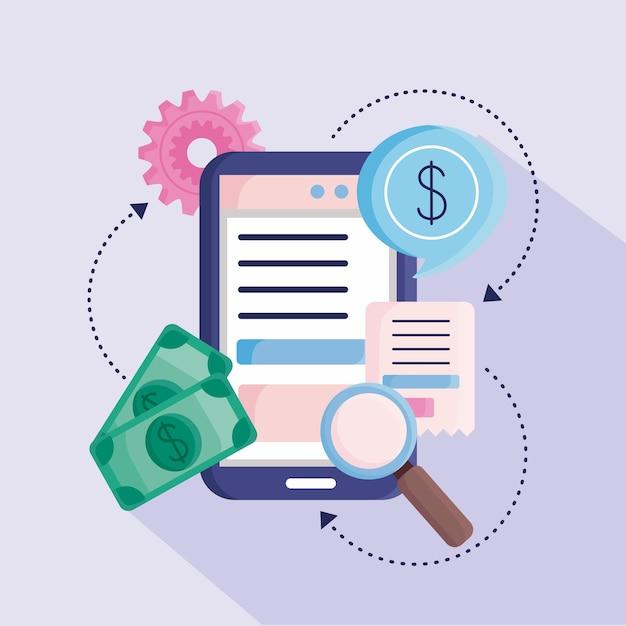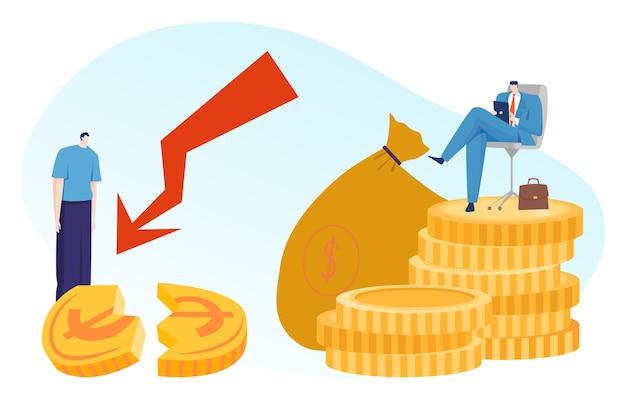Are you a small business owner looking for financing options? If you’ve been turned down by traditional lenders or have found their lending terms too rigid, you may want to explore non-recourse small business loans.
In this blog post, we’ll take a deep dive into non-recourse small business loans, SBA loans, and explore options for new businesses. We’ll also address some common questions regarding the qualifications for non-recourse loans and the easiest SBA loans to get approved for.
We want to provide you with a comprehensive understanding of non-recourse small business loans so that you can make educated decisions as a small business owner. So, sit back and relax as we explore this exciting topic together!
Understanding Non-Recourse Small Business Loans
Small business owners are likely to be familiar with the concept of securing a business loan, but not all loans are created equal. One type of loan that may be unfamiliar to some is the non-recourse small business loan. In this subsection, we’ll break down what non-recourse loans are, how they differ from other business loans, and what their benefits and drawbacks are.
What is a Non-Recourse Small Business Loan
A non-recourse small business loan is a type of loan where the borrower is not personally liable in case the loan defaults. This means that if a borrower defaults on the loan, the lender can only take action against the collateral put up for the loan and cannot go after the borrower’s personal assets. Non-recourse loans are typically shorter in duration, have a higher interest rate, and are usually secured by specific collateral such as accounts receivable or inventory.
How Does a Non-Recourse Small Business Loan Differ from Other Business Loans
In contrast to non-recourse loans, recourse loans allow lenders to go after the borrower’s personal assets in case of default. This means that if a borrower defaults on the loan, the lender can take legal action against the borrower and potentially seize their personal assets to pay off the remaining loan amount. To mitigate this risk, non-recourse loans are typically secured by collateral that would enable lenders to recoup their losses, without having to go after the borrower’s personal assets.
The Pros and Cons of Non-Recourse Small Business Loans
One of the biggest benefits of non-recourse loans is that they reduce the risk for the borrower. In the event of a default, the borrower’s personal assets are protected. Additionally, non-recourse loans can be a useful tool for businesses that may not have established credit or collateral to secure a traditional loan. However, non-recourse loans typically come with higher interest rates and shorter repayment terms, which means that businesses may end up paying more in interest over the life of the loan.
In conclusion, non-recourse small business loans are a type of loan that offer both benefits and drawbacks. They can be a useful tool for businesses looking to secure financing without putting personal assets at risk, but they come with a higher interest rate and shorter repayment terms. As with any business decision, carefully consider the pros and cons before choosing a non-recourse loan as your financing option.
SBA Loans
SBA loans are a type of non-recourse small business loan that is guaranteed by the Small Business Administration (SBA). The SBA does not directly lend money to small business owners but rather sets guidelines for loans made by their lending partners. These loans are generally available to businesses that meet certain criteria, such as being located in the United States, being operated for profit, and having a certain number of employees.
Benefits of SBA Loans
SBA loans come with several advantages that make them an attractive option for small business owners. These benefits include:
-
Lower down payments – SBA loans typically require lower down payments than traditional business loans.
-
Longer repayment terms – SBA loans have longer repayment terms, which can help keep monthly payments low.
-
Lower interest rates – SBA loans generally have lower interest rates than traditional business loans.
-
Guaranteed by the SBA – SBA loans are guaranteed by the government, which can make it easier for small business owners to obtain financing.
Types of SBA Loans
The SBA offers a variety of loan programs to help small businesses access the funding they need. Some of the most common types of SBA loans include:
-
The 7(a) Loan Program – This is the SBA’s primary loan program, which provides funding for a variety of business expenses, such as working capital, equipment purchases, and real estate.
-
The CDC/504 Loan Program – This loan program is designed to help small businesses purchase real estate or large equipment.
-
The Microloan Program – This loan program provides small businesses with loans of up to $50,000 for working capital or other business expenses.
How to Apply for an SBA Loan
To apply for an SBA loan, small business owners must first find an approved SBA lender. The lender will review the business’s financial information and determine if it meets the SBA’s eligibility requirements. Once approved, the business owner can begin the application process, which can be time-consuming and require a lot of paperwork.
In conclusion, SBA loans are an attractive option for small business owners looking to access financing. They come with several benefits, including lower down payments, longer repayment terms, and lower interest rates. To apply for an SBA loan, small business owners must first find an approved SBA lender and go through a rigorous application process.
SBA 7(a) Loan Terms
Small Business Administration (SBA) 7(a) loans are a popular government-backed financing option for entrepreneurs wanting to start or expand their business. They are one of the most flexible loan products available, with some of the most generous terms.
Funding Amounts
The maximum amount of capital that business owners can borrow under the SBA 7(a) loan program is $5 million. This funding can be used for most business purposes, including expansion, acquisition, and working capital.
Interest Rates
The interest rates for SBA 7(a) loans are some of the lowest available, with rates typically ranging from 7.5% to 11.5%. The interest rate for these loans is determined by the prime rate (currently set at 3.25%), and lenders can add a margin of up to 2.75% on top of the base rate.
Loan Terms
The maximum loan term for SBA 7(a) loans is 25 years for real estate purchases and upgrades and 10 years for working capital. The repayment schedules are flexible and can be set up to match a business’s seasonal cash flow needs.
Fees
SBA 7(a) loans carry fees, including a guarantee fee of up to 3.75% of the guaranteed portion of the loan and a servicing fee, which is typically 1% of the outstanding balance of the loan.
Eligibility
To be eligible for an SBA 7(a) loan, a business must be for-profit, have a net worth of less than $15 million, and an average net income of under $5 million in the previous two years.
Overall, SBA 7(a) loans offer a flexible, low-cost financing option that can help small businesses in a variety of ways. However, it’s essential to understand the terms, fees, and eligibility criteria before applying. With the right approach, an SBA 7(a) loan can be an excellent source of capital for small business owners.
SBA Loan for New Business
Are you a new business owner looking for financing options? If so, you may want to consider applying for an SBA loan. SBA stands for Small Business Administration, and this federal agency provides loans to small businesses that might not otherwise qualify for traditional bank loans.
What is an SBA Loan
An SBA loan is a type of loan that is backed by the Small Business Administration. This means that the SBA guarantees a portion of the loan, which makes it less risky for lenders to provide financing to small businesses. The main objective of an SBA loan is to help growing businesses get access to working capital so they can expand and create jobs.
How to Apply for an SBA Loan
To apply for an SBA loan, you need to find an SBA-approved lender first. You can find a list of approved lenders on the SBA website. Once you have found a lender, you need to fill out an application and provide all the necessary documentation, including financial statements, tax returns, and a detailed business plan. The approval process can take several weeks, so it’s essential to be patient.
Types of SBA Loans
The SBA offers several types of loans, each designed to meet different needs. The most common types of SBA loans for new businesses include:
1. 7(a) Loans
7(a) loans are the most common type of SBA loan, and they are designed to help small businesses get access to working capital. You can use the money to purchase inventory, equipment, or pay for operating expenses.
2. Microloans
Microloans are small loans (up to $50,000) that are designed to help startups and small businesses with cash flow issues. Microloan lenders usually require collateral, such as personal assets or equipment.
3. SBA Express Loans
SBA Express loans are a type of 7(a) loan but with a faster approval and disbursement process. You can receive up to $350,000 in funding within 36 hours.
Who Qualifies for an SBA Loan
To qualify for an SBA loan, your business needs to meet certain eligibility requirements. These include:
- Must be a for-profit business
- Must operate in the United States
- Must have a reasonable amount of owner equity
- Must demonstrate the ability to repay the loan
- Must not be delinquent on any existing debt obligations
Some lenders may also require a personal guarantee from the business owner, which means they have to provide some personal assets as collateral.
SBA loans are a valuable financing option for new businesses looking to grow and expand. They offer lower interest rates, longer repayment terms, and more flexible credit requirements than traditional bank loans. If you’re interested in applying for an SBA loan, make sure to research the different types of loans available and find a lender that is SBA-approved. Good luck!
SBA Express Loan Requirements
Are you a small business owner in need of funding? Have you heard of the Small Business Administration (SBA) Express loan program, but not sure if you qualify? Here are some SBA Express loan requirements you need to know.
Program Overview
The SBA Express loan program is designed to provide quick access to financing for small businesses. The program offers loans up to $350,000 with a fast approval process, usually within 36 hours. The SBA guarantees a percentage of the loan for the lender, which reduces the risk for lenders and makes it easier for small businesses to qualify.
Eligibility Criteria
To qualify for an SBA Express loan, your business must:
- Be a for-profit, small business in the United States
- Have a minimum credit score of 680
- Demonstrate the ability to repay the loan on time
- Be current on all government loans and obligations
- Be in good standing with the SBA
Required Documentation
To apply for an SBA Express loan, you will need to provide the following documentation:
- Business financial statements
- Personal financial statements for all owners with a 20% or more ownership stake in the business
- Business tax returns for the past three years
- Personal tax returns for all owners with a 20% or more ownership stake in the business
- Business plan outlining how the loan will be used and repaid
The SBA Express loan program is a great option for small businesses looking for quick access to funding. If your business meets the eligibility criteria and has the required documentation, you could receive funding in as little as 36 hours. Don’t hesitate to explore this option if you need funding for your small business.
Are SBA Loans Qualified Nonrecourse
If you’re a small business owner seeking a loan, you’re likely interested in exploring multiple options, including non-recourse loans offered by the Small Business Administration (SBA). However, you might wonder if SBA loans fall under the category of qualified nonrecourse loans. This section delves into the subject.
Understanding SBA Loans
The SBA aims to help small business owners access capital through loan programs it guarantees. The administration partners with eligible lenders like banks and credit unions to provide a range of loan options. SBA loans offer competitive interest rates, longer repayment terms, and more flexible requirements than conventional loans.
Qualified Nonrecourse Loans
A nonrecourse loan is a debt type in which borrowers don’t face liability for unpaid balances when they default. If the collateral is insufficient to cover the outstanding loan balance, the lender takes the loss. A qualified nonrecourse loan meets specific conditions outlined by the Internal Revenue Service (IRS). For example, the loan must finance the purchase of a property or capital asset, and the lender can’t hold the borrower personally liable.
Are SBA Loans Qualified Nonrecourse
SBA loans don’t fall under qualified nonrecourse loans. The administration guarantees SBA loans up to a certain percentage, typically around 85%, and the lenders assume the remaining liability. Furthermore, the SBA requires borrowers to sign personal guarantees, making them responsible for unpaid debts. However, SBA loans offer a degree of protection to borrowers. For example, when the collateral value falls short, the lender must seek payment from the SBA before collecting from the borrower, lowering the business owner’s risk.
In summary, SBA loans aren’t qualified nonrecourse debt, as they require borrowers to sign personal guarantees and don’t follow the strict IRS conditions for nonrecourse loans. However, they provide small business owners with favorable terms and some protection against liability. If you’re considering an SBA loan to fund your business, it’s essential to understand its terms, conditions, and requirements to make an informed decision.
What is a Non-Recourse Business Loan
If you own a small business, then you know that access to capital is critical. When you need cash to grow your business, a non-recourse business loan can be an excellent option. But what exactly is a non-recourse business loan?
Defining a Non-Recourse Business Loan
A non-recourse business loan is a financing option where the lender doesn’t require personal guarantees from the business owner. This means that in the event of default, the lender cannot seize the borrower’s personal assets. Instead, the lender will use only the business assets that were used to secure the loan.
How Non-Recourse Business Loans Work
When applying for a non-recourse business loan, the lender will assess the value of the business assets that will secure the loan. If the loan is approved, the borrower will receive the cash for their business. In default, the lender can only take possession of the assets used as collateral.
Advantages of Non-Recourse Business Loans
There are a few advantages to using non-recourse business loans. First, they offer less risk to the borrower because their personal assets are not at risk. This can make it easier to secure financing and help reduce stress and anxiety related to the loan.
Second, non-recourse loans may offer lower interest rates because the lender assumes more risk. However, it’s crucial to compare interest rates and terms from multiple lenders before applying for any loan.
Overall, non-recourse business loans can be an excellent financing option for small business owners who need access to capital. Understanding how they work and their advantages can help make an informed decision when looking for financing options.
What is the Easiest SBA Loan to Get Approved for
Small business owners looking for funding often turn to the Small Business Administration (SBA), a government organization that guarantees loans for small businesses. While there are several types of SBA loans, some are easier to get approved for than others. Here are some SBA loan options to consider if you’re looking for an easier approval process.
SBA 7(a) Loan
The SBA 7(a) loan is the most popular and easiest option for small businesses to get approved for. With this loan, you can borrow up to $5 million for a variety of purposes, including working capital, real estate, and equipment purchases. This loan has a longer repayment term, up to 25 years for real estate purchases and 10 years for other purposes.
SBA Express Loan
The SBA Express Loan is a faster and easier version of the SBA 7(a) loan, with a shorter application process and faster approval time. You can borrow up to $350,000 with this loan, and it can be used for working capital, equipment purchases, and other business needs. The SBA guarantees up to 50% of the loan amount, and lenders have more flexibility in setting interest rates.
Community Advantage Loan
The Community Advantage Loan is designed for small businesses in underserved communities, including women, minorities, and veterans. This loan has a maximum amount of $250,000 and can be used for a variety of purposes, such as working capital, equipment purchases, and real estate. The approval process for this loan is easier and faster than other SBA loans, and the SBA guarantees up to 85% of the loan amount.
While getting approved for an SBA loan can be challenging, these loan options offer a simpler and more streamlined process. Whether you’re looking for working capital, equipment purchases, or real estate, these loans can provide the funding you need to grow your business. Consider talking to an SBA-approved lender to see which loan options are the best fit for your business needs.


